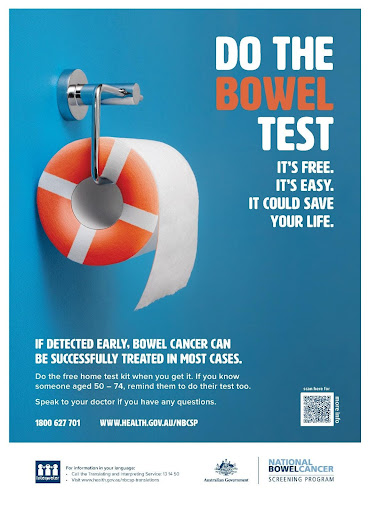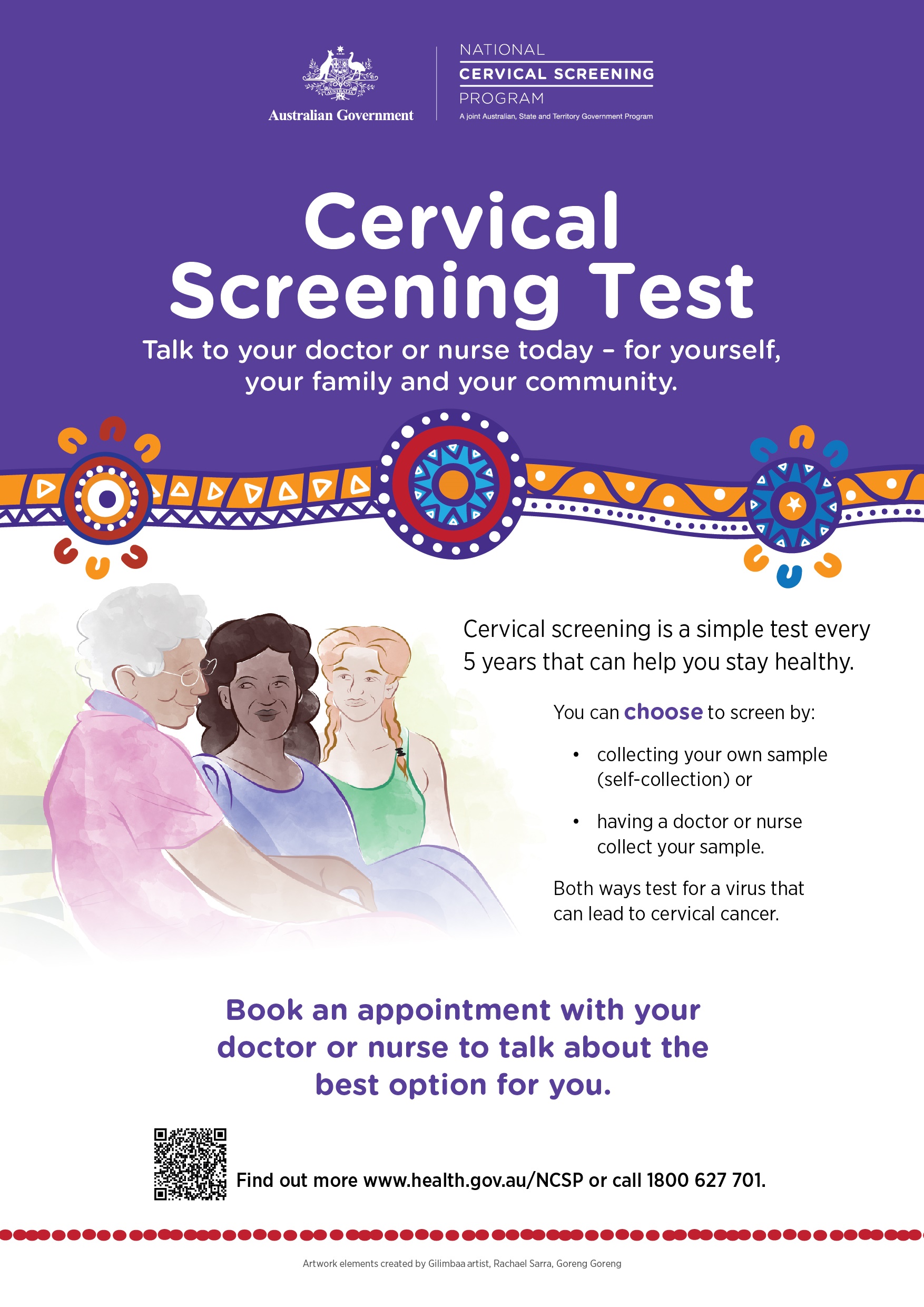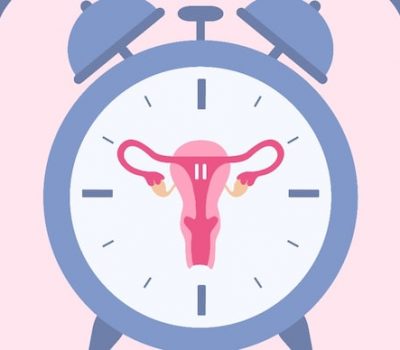By Dr Sarah Lewis
First of all, what is screening?
Screening involves carrying out a test in order to detect a particular health condition in a person without symptoms of that condition.
In Australia, there are 3 free, national cancer screening programs:
- Bowel cancer screening
In the general population, adults (both male and female) aged 50 to 74 get sent a Bowel Screening test kit in the mail every 2 years. The test involves collecting 2 small stool samples and sending/dropping them back to a lab. Speak to your GP if you have a family history of bowel cancer, as the recommended screening pathway may be different for you.
- Cervical cancer screening
Those with a cervix aged 25 to 74 should have a Cervical Screening Test every 5 years. Depending on the test result, you may be advised to have it repeated sooner or be referred to see a gynaecologist.
This test was traditionally always carried out by a clinician (doctor/nurse/midwife), using special equipment to collect a sample of cells from the cervix. It should not be painful – most women report just mild discomfort. Since July 2022, there is the option of doing a self-collected Cervical Screening Test. However, this option may not be appropriate for all women – talk to your GP about the differences between clinician and self-collected testing.
- Breast cancer screening
Women between the ages of 50 and 74 are sent a letter by BreastScreen every 2 years inviting them to have a screening mammogram. Women over 40 years of age are now able to have a free mammogram every 2 years too, if they wish. This involves making an appointment at a BreastScreen facility- – there are over 750 locations across the country. As with bowel cancer screening, there may be a different screening pathway if you have a family history of specific cancers (including breast) – ask your GP about the guidelines.
Cancer screening tests, by definition, are not diagnostic – meaning, if they are positive (i.e. abnormal), it does not necessarily mean that a person has cancer. In the case of a positive test, further assessment and investigation should be carried out by your doctor.
We are often asked about screening tests for other cancers, particularly prostate and ovarian cancer. Are there screening tests for these conditions?
Unfortunately, there is no reliable screening test for ovarian cancer but a lot of research is being carried out in this area.
There is no widely recommended test to screen for prostate cancer. It may be appropriate for some men to have a blood test called PSA (prostate specific antigen), based on their risk factors and symptoms. Men should be involved in making this decision with their GP – the article below in ‘useful links’ can help with the discussion.
There are several non-cancer screening tests we advise, that can be arranged by your GP – this will be discussed in another blog post soon!
Useful links:
Bowel cancer screening – https://www.health.gov.au/our-work/national-bowel-cancer-screening-program
Self-collected cervical screening – https://www.health.gov.au/self-collection-for-the-cervical-screening-test
Breast screening – https://www.breastscreen.health.wa.gov.au/
Should I have prostate cancer screening?









